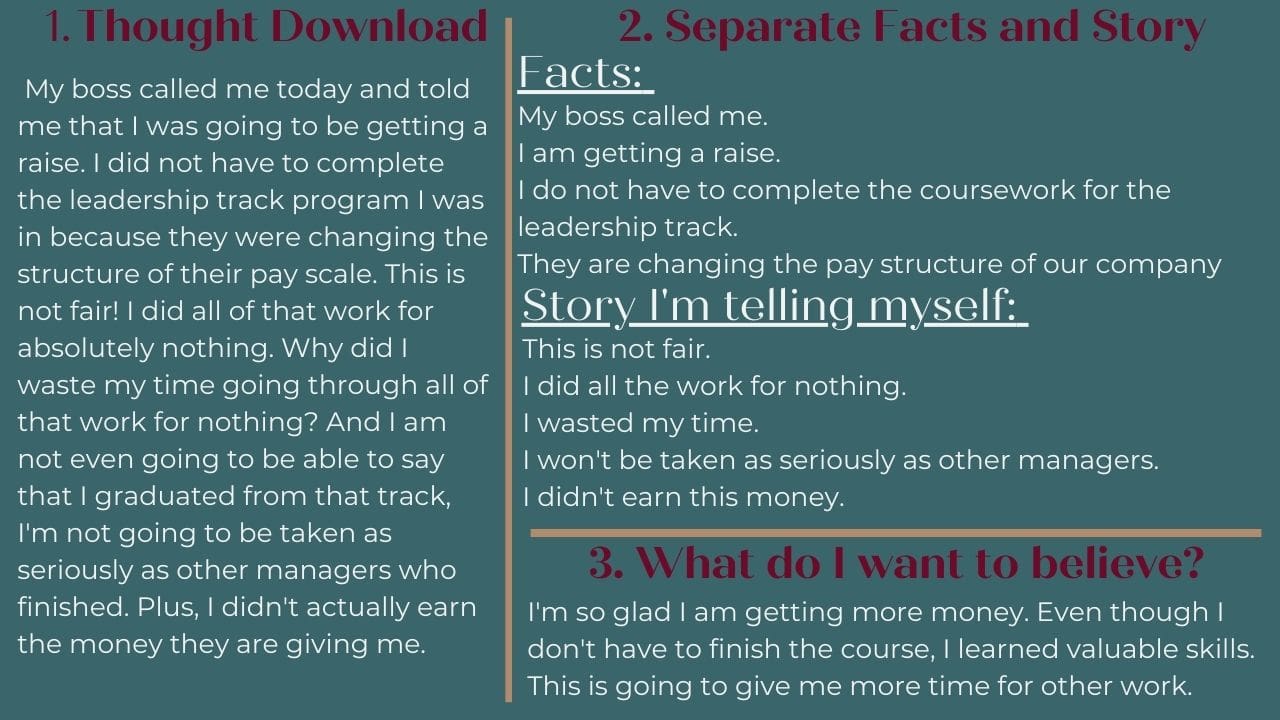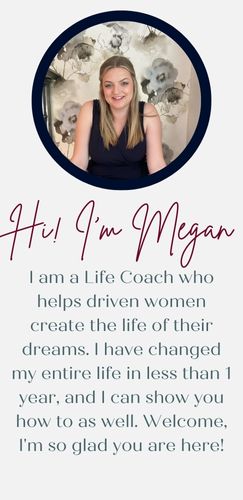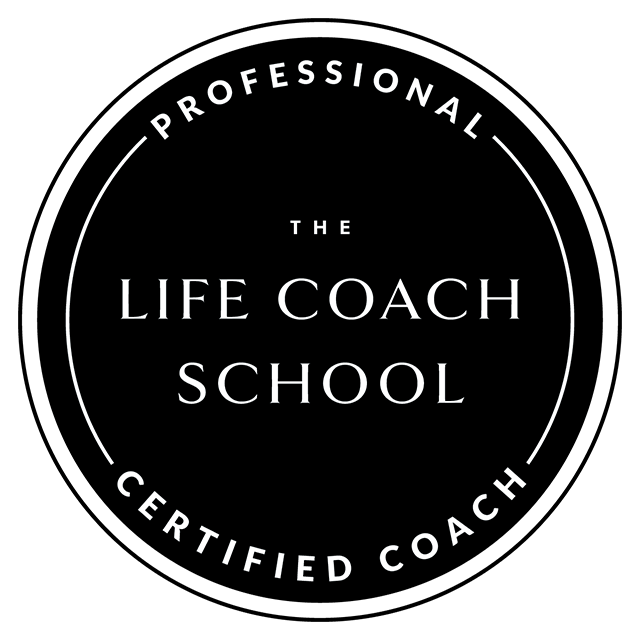What are the stories that you tell yourself about your life? About your day?
I used to tell the story of my life with me staring as a victim.
I was the child of an alcoholic, so of course I had trust issues. Then my fiancé cheated and lied. So of course I can’t be vulnerable. Oh- and he did it when I gained weight and became successful at my job. So of course fat on me was ugly, that’s why he left. And of course, I can’t be too successful or it will intimidate people and I will be alone forever. Of course, of course, of course. And I believed my story. It felt very true. And I had a strong identity as that of a victim.
I now tell the story of myself as a hero.
I attempted suicide at 19 years old. Wow, have I come so far and become a huge advocate for people struggling with their mental health. I graduated with honors and got a master’s degree two years later while working full time. Wow, am I a rockstar who is super driven. I ended an engagement when my family told me to stay. I kicked him out and stayed firm against all of the attempted manipulation. Wow, am I strong and brave. I climbed the ranks at my job so quickly that I was a member of leadership at 26 years old. Wow, am I ambitious. I realized at 28 that everything I thought would fulfill me didn’t and decided to quit my lucrative job, move across the country, get a new job, move in with my parents and launch my own business. Wow, I’m taking some serious risks and they are going to pay off.
Notice that both of the above examples are stories. They are both my story. I have the same exact set of circumstances in my life. But the ones that I chose to think about, I shape differently. I shape them according to how I want to feel. How I want to tell my story.
Here is the thing – neither one is right and neither one is wrong. Neither is better or worse. The difference is the one that I am choosing and the one that I have let go of.
So, I ask you again – do you know what story you are telling? Not sure? Keep reading.
The importance of separating stories from facts
When we tell a story about our life or recount an event that happened, we tend to tell it with lots of thoughts and feelings included.
Let me give you an example from a client of mine.
Her fiancé came home and was looking at their plants. Before he said anything else to her he angrily asked, “What did you do to the plants?” When she replied telling him that she watered them, he snarkily said, “Well whatever you did, don’t do again they look like shit.” Then he stormed away. She thought, “Wow that was super rude and not ok, he must be really mad at me. What the hell did I do? I didn’t do anything, he can’t do that!”
Ok, so before we all jump in with her and agree that it was rude of him to talk like that and yes girl you should go confront him- let’s decide how we want to feel. For my client – she didn’t want to feel angry. She didn’t want to be in a fight with him.
But Megan – look at what happened?! He clearly is mad at her, so he picked the fight not her!
False.
This is where we need to separate fact from story.
Fact:
Fiancé came home. He said “What did you do to the plants? Well whatever you did, don’t do it again, they look like shit.” He walked out of the room.
That’s it. Those are the facts.
Her story included extra elements. These “extra” are here story:
He spoke snarkily and angrily. He stormed out of the room. He was super rude. He must be angry at me. I didn’t do anything. That’s not ok. He can’t do that.
Notice that the facts are things that every person can agree on. They would stand up as fact in a court of law. We might agree with her story, but it does not mean that everyone would – they are not actually facts.
The story consists of the thoughts that my client had about the situation. They are her interpretation. He might not agree that he stormed out, but she interpreted his walking out as storming out.
Ok, so why does this matter?
Stay with me!
Why separate story from facts?
We want to separate our story from the facts of the situation because we want to see if the story that we are telling ourselves about the situation is one that serves us.
And here is the thing – sometimes we WANT to believe that story. Some of you would want to believe my client’s story and go tell him to shove it where the sun doesn’t shine. And that is ok! And some of you might say that it wouldn’t be worth a fight. Neither answer is correct – it’s about choosing what you WANT to believe, not the automatic programming that is inside of you.
My client didn’t want to pick a fight. She didn’t want to create distance. Once she separated out the facts from the story, she saw that his behavior was not normal. He didn’t react to her actually doing anything wrong, so she thought that something else might have been bothering him.
Instead of reacting in anger, she changed the narrative. She thought instead, “you know that is really not like him. Something must be wrong. I wonder what happened at work today. I’m going to check on him.”
She went from anger and indignation to curiosity and compassion.
She gave him some space and when they talked about it later, he apologized and told her about the terrible event that had happened at work. Instead of dwelling in the anger and potentially creating more anger through confrontation, she was able to approach the situation in a way that felt most aligned with who she wanted to be in the situation.
Again – either way is correct. But deciding ahead of time what story you want to tell yourself is really important.
This was one example of a story from a day. We have thousands of those. We also have the story we tell about our life.
I was telling the story of a victim. When I thought thoughts around me being a victim, I showed up as a victim. I didn’t like myself, I thought the world would always be out to get me and I thought that my life would be a struggle – a constant game that I had to figure out how to win.
When I decided that I didn’t like the story of a victim, I decided to tell a different story of my life. The circumstances around my childhood and my engagement and my mental health were the exact same. But instead of feeling upset or down about them, I chose strength and courage and a story of growth. So now when I am faced with a challenge I feel inspired and ignited because I feel powerful, not powerless.
So – how can you determine which stories you are telling and which stories you want to tell?
Step 1: Do a thought download. This is literally just getting your thoughts out. You can do this by journaling about a situation, talking into your phone or listing the details as a list.
Step 2: Separate story from facts. Think about it this way – what are the details that every single person in the world would agree on (facts) and what are the things that are your interpretation (stories)?
Step 3: Look at the story that you told. Is that what you want to believe? Does that serve you? If not – what other possibilities could you believe around those facts? Write down that story instead.
Look at this visual example below for help:

This is the power of our brains. When we change the story we are changing our thinking. When we change our thinking, we change what we feel, how we act and therefore change our results. Maybe we don’t really want to pick a fight. Maybe we don’t want to feel like a victim. Or maybe we do. Either way, we have the ability to create the narrative of our life that serves us the best.
What story are you going to choose about your life?








